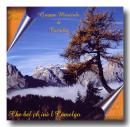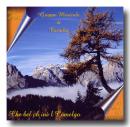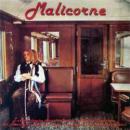Il migliore dei mondi possibili
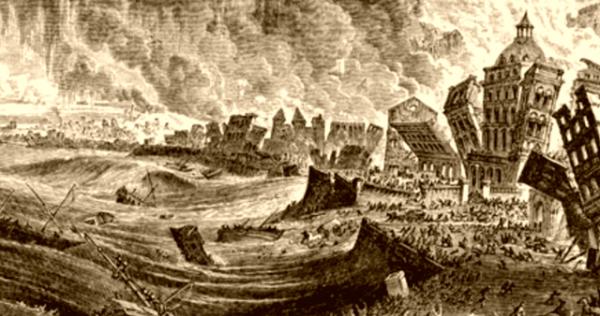
Chanson italienne – Il migliore dei mondi possibili - Massimo Priviero – 2015
Chacun défend son pré carré.
Et peu sentent vraiment le besoin du bien commun. Celui qui a le cul protégé regarde de haut celui qui n’en sort pas. Est-ce ce que vous voulez ?
Dans ce cas, ignorez LE MEILLEUR des MONDES POSSIBLES. Dans le cas contraire, écoutez et vivez comme cette chanson. Chacun de nous a le devoir, pour ce qui le concerne, de faire de son mieux pour que peut-être, un jour, le nôtre soit le meilleur des mondes possibles. »
Massimo Priviero
Le concept du « meilleur des mondes possibles » est un concept philosophique de Gottfried Wilhelm von Leibniz.
Dialogue maïeutique entre l’âne et l’humain
Voici, Lucien l’âne mon ami, dit Marco Valdo M.I., une chanson on ne peut plus contemporaine, musicalement inspirée d’une chanson étazunienne. Mais, oh miracle, elle se réfère aussi à un grand philosophe... (continua)
Chacun défend son pré carré.
Et peu sentent vraiment le besoin du bien commun. Celui qui a le cul protégé regarde de haut celui qui n’en sort pas. Est-ce ce que vous voulez ?
Dans ce cas, ignorez LE MEILLEUR des MONDES POSSIBLES. Dans le cas contraire, écoutez et vivez comme cette chanson. Chacun de nous a le devoir, pour ce qui le concerne, de faire de son mieux pour que peut-être, un jour, le nôtre soit le meilleur des mondes possibles. »
Massimo Priviero
Le concept du « meilleur des mondes possibles » est un concept philosophique de Gottfried Wilhelm von Leibniz.
Dialogue maïeutique entre l’âne et l’humain
Voici, Lucien l’âne mon ami, dit Marco Valdo M.I., une chanson on ne peut plus contemporaine, musicalement inspirée d’une chanson étazunienne. Mais, oh miracle, elle se réfère aussi à un grand philosophe... (continua)
LE MEILLEUR DES MONDES POSSIBLES
(continua)
(continua)
inviata da Marco Valdo M.I. 25/2/2016 - 21:53
Crossfire

(non si sa di chi visto che non ha firmato)
Mi sembra un incubo che diventa realtà
(continua)
(continua)
25/2/2016 - 15:21
I Hate the Whiteman
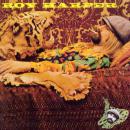
Pathetic…?…!, by Roy Harper
March 20, 2010
I received this on March 17th 2010 from deepest bellsouth.net
Comment: I just wanted to say that I wouldn’t purchase anything from someone that hates his own race. Pathetic.
I felt that I should reply to the uninformed taunt that this represents, so I wrote the following:-
‘I Hate The White Man’ was written in response to the many injustices that the peoples/tribes of Europe had inflicted on greater Humanity in the modern age. Roughly over the period since the more precise mapping of the planet at the beginning of the age of discovery; which brought us into contact with peoples we considered, wrongly, to be inferior. Perhaps the crucible for this was the bloodbath of 14th Century Europe, second only to the 20th Century in terms of carnage, but that strays into opinion and theory.
Other races were successively subjected to racism, slavery,... (continua)
Bernart Bartleby 25/2/2016 - 10:35
Αρκαδία IV - ᾩδαί
Nuova canzone di Mikis (parole e musica), presentata ieri presso edizioni Eumaros, Atene.
https://www.youtube.com/watch?v=apXBKafKvlw
https://www.youtube.com/watch?v=apXBKafKvlw
Andrea 24/2/2016 - 16:24
Princesa

Dal blog Fabrizio De André in English
"Princesa" is about Fernanda Farias de Albuquerque, who was born in Brazil in 1963 as a male but from the age of six years identified as female. She emigrated to Spain at the age of 25 and then to Italy, where she was a sex worker in order to pay for a sex change operation. She was incarcerated for the attempted murder of the madam of the brothel where she worked after the madam had stolen money from her. In jail, she met a Sardinian shepherd who had attempted a bank robbery. The two spoke about Brazil and Sardinia in a mix of languages. Another inmate, sentenced to two life sentences, undertook to write the story of Fernanda/Princesa, and after a year of collaboration the book was published in 1994, on which De André based this song. The happy ending of the song did not mirror what happened in real life - Fernanda/Princesa ended her life in 1999 without having completed the transition to being female. - Dennis Criteser
PRINCESS
(continua)
(continua)
inviata da Riccardo Venturi 24/2/2016 - 15:15
Parlando del naufragio della London Valour
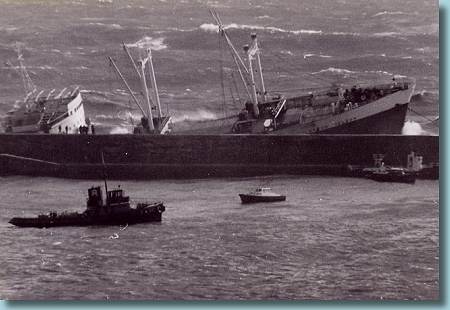
Dal blog Fabrizio De André in English
The shipwreck of the London Valour was an actual event that took place in Genoa in 1970. But the focus in this song is on the people who came out to the Genoa docks to rubber neck and watch the unfolding tragedy in morbid fascination. The lyrics are somewhat obtuse, with many possible references to political events and cultural figures from Italy's Years of Lead, (the late 1960's to the early 1980's), which were marked by tremendous social upheaval and terrorism. - Dennis Criteser
The shipwreck of the London Valour was an actual event that took place in Genoa in 1970. But the focus in this song is on the people who came out to the Genoa docks to rubber neck and watch the unfolding tragedy in morbid fascination. The lyrics are somewhat obtuse, with many possible references to political events and cultural figures from Italy's Years of Lead, (the late 1960's to the early 1980's), which were marked by tremendous social upheaval and terrorism. - Dennis Criteser
SPEAKING OF THE SHIPWRECK OF THE LONDON VALOUR
(continua)
(continua)
inviata da Riccardo Venturi 24/2/2016 - 15:07
Ottocento
Dal blog Fabrizio De André in English
In "Ottocento," De André sings in the style of opera buffa and the song ends with Tyrolean yodeling, the idea being to describe 20th century society in 19th century style. He explains that "it's a style of singing falsely cultured, an approach suggested to me by the pomposity of a character who, more than a man, is a vacuum cleaner: he breathes in sweet sentiments, affections, vital organs and objects in front of him to which he displays a single mental attitude: the possibility of buying and selling them. . . . Here is painted a portrait of the bourgeoisie, in the exact moment of its affirmation of power: the world of the protagonist is dominated by money and by huge quantities of merchandise." The phrase "bronze of Versace" calls to mind the Riace Bronzes, a nice contrast between the superficial and fleeting beauty that pop culture craves and the more enduring beauty of past treasures of art. - Dennis Criteser
THE EIGHTEEN HUNDREDS
(continua)
(continua)
inviata da Riccardo Venturi 24/2/2016 - 14:43
Ai preât la biele stele

Toda la tristeza y el profundo sentimiento religioso del pueblo friulano que sufrió en carne propia todo el dolor de la guerra. Sus hombres combatiendo en el frente, sus mujeres, las portatrice carniche sosteniendo el frente cada día llevando alimentos, municiones y bajando heridos y muertos.
Sufrieron el exilio y la invasión de sus casas, el dolor de la derrota, la victoria que fue amarga y muy costosa.
Los friulanos de Argentina honramos la memoria de nuestros padres y abuelos que sufrieron en la Primera y Segunda Guerra Mundial.
Sufrieron el exilio y la invasión de sus casas, el dolor de la derrota, la victoria que fue amarga y muy costosa.
Los friulanos de Argentina honramos la memoria de nuestros padres y abuelos que sufrieron en la Primera y Segunda Guerra Mundial.
LE HE REZADO A LA BUENA ESTRELLA
(continua)
(continua)
inviata da Eduardo Dino Baschera 24/2/2016 - 14:27
Laudate Hominem
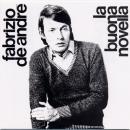
Dal blog Fabrizio De André in English
De André once called "Laudate hominem" his final sermon of the album. "I need to, and I believe everyone's like me, consider Christ to be a man, and his story also a human one. Because if I consider him to be a God, he can't be imitated; if he's considered a man, yes, I can do it." - Dennis Criteser
PRAISE THE MAN
(continua)
(continua)
inviata da Riccardo Venturi 24/2/2016 - 13:59
La morte

Dal blog Fabrizio De André in English
"La morte" uses the music of “Le verger du roi Louis,” released in 1960 by the French singer/songwriter Georges Brassens, setting to music a 19th century poem by Théodore de Banville. The poem alludes to the "gardens of King Louis" - the parts of his forest that were reserved for those who were hanged, in "clusters never visited." De Andrè feared death, something he spoke about on several occasions, and death is a presence in many of his songs. The opening lines of De Andrè's lyric are quite similar to the first lines of Cesare Pavese's 1950 poem "Death Will Come and Have Your Eyes." - Dennis Criteser
DEATH
(continua)
(continua)
inviata da Riccardo Venturi 24/2/2016 - 09:46
Disamistade

Dal blog Fabrizio De André in English
"Disamistade" is about blood feuds, which until quite recently were common in Sardinia, and which are probably still bubbling under the surface there according to this article on a 2008 vendetta killing of a poet. In contrast with the other songs on this album, which portray different faces of solitude, this song is about a violence that can happen when people live in close proximity to each other, where envies and slights can fester and erupt into killings that continue in an unending progression as one spilling of blood must be avenged by another. "Disamistade" was translated to English and covered by the American folk/rock band The Walkabouts. - Dennis Criteser
BLOOD FEUD [1]
(continua)
(continua)
inviata da Riccardo Venturi 24/2/2016 - 08:37
La collina, o Dormono sulla collina

--> Fabrizio De André in English
"The Hill" is the opening poem of The Spoon River Anthology and sets the stage for the book's 240 poems from 212 different characters that follow. - Dennis Criteser
THE HILL
(continua)
(continua)
inviata da Riccardo Venturi 24/2/2016 - 06:29
Roberto Vecchioni: Figlia

Per Davide, se legge: l'inversione dei nomi dei poeti era voluta, si tratta di un artifizio che uso non di rado, una sorta di calembour che, in ultima analisi, affonda le sue radici nella "saga" di Fantozzi. Saluti.
Riccardo Venturi 23/2/2016 - 22:39
Io se fossi Dio

Cacchio, vedo adesso che mi tocca tradurre anche la versione no 2 del 1991. No, pietà!
Saludon general
Saludon general
Krzysiek 23/2/2016 - 22:23
Fabrizio De André: Un Medico

Dal blog Fabrizio De André in English
A DOCTOR
(continua)
(continua)
inviata da Riccardo Venturi 23/2/2016 - 20:32
Volta la carta
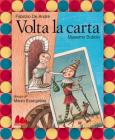
Dal blog Fabrizio De André in English
De Andrè and Bubola weave a story of a young girl who falls in love with an American pilot into strands of other references to pop songs (Angiolina, Madamadorè) and films ("a policeman fell in love with her" references Pane, amore e fantasia, for example). - Dennis Criteser
TURN THE CARD OVER
(continua)
(continua)
inviata da Riccardo Venturi 23/2/2016 - 19:12
×
![]()





